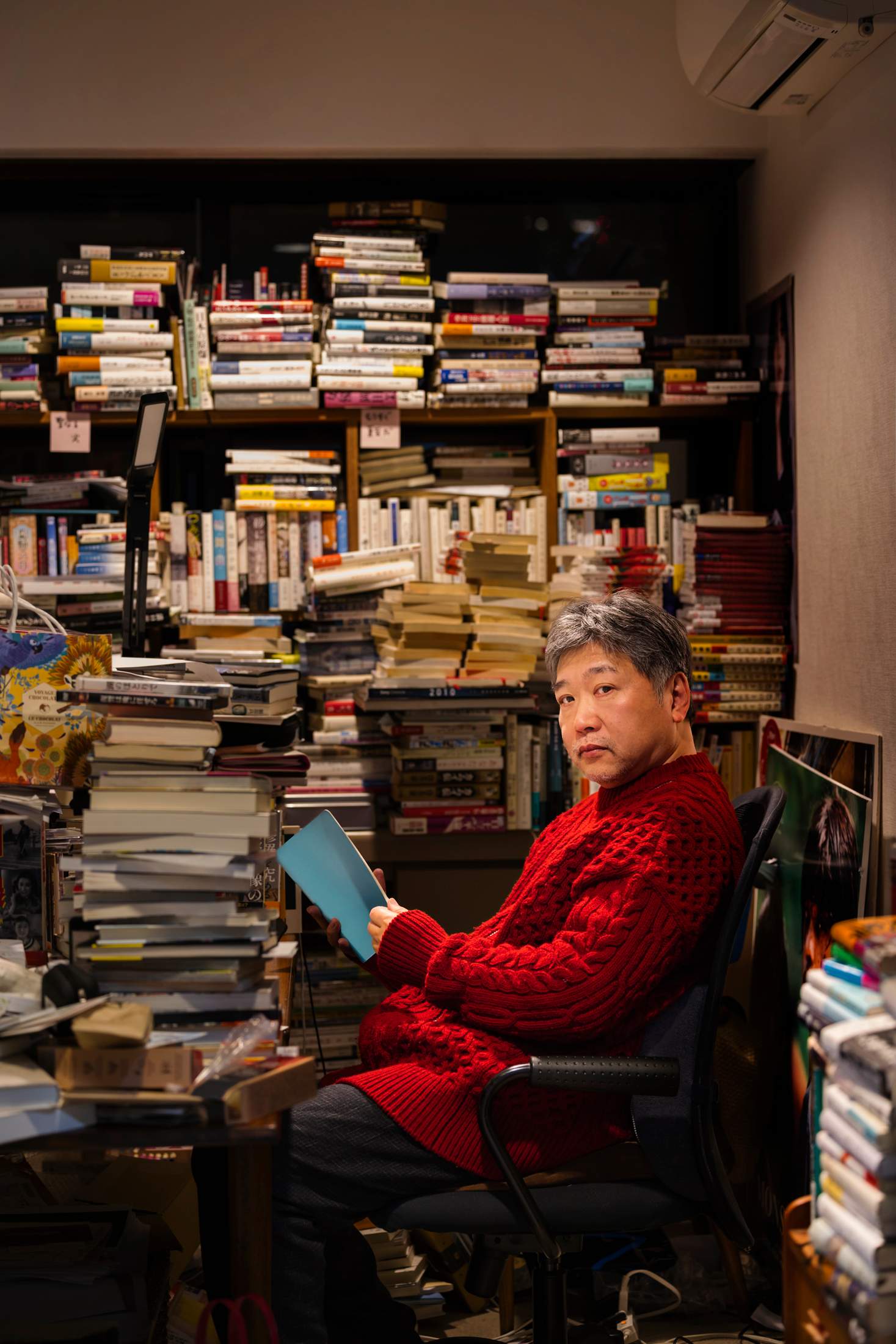Culture: Film / Tokyo
Creating ‘Monster’
Celebrated film-maker Hirokazu Kore‑eda on optimism, storytelling, working with the late Ryuichi Sakamoto and his newest film.

Japanese film-maker Hirokazu Kore‑eda, who was born in Tokyo in 1962, is internationally admired as a storyteller who mixes the tough and the tender. Titles such as Nobody Knows (2004), the Palme d’Or-winning Shoplifters (2018) and Broker (2022) present compelling characters, often thrown together and acting as a family, who collaborate to rise above their strange, straitened lives with courage and charm. His latest film, Monster (2023), centres on two boys, Minato and Yori, and an accusation of school bullying and the ramifications it has on careers, family and friendships. Kore‑eda, who normally writes and directs, took this story from screenwriter Yuji Sakamoto. The score, meanwhile, comes courtesy of the late, great Ryuichi Sakamoto and is a beautiful soundtrack for an entrancing drama about authority and the expectations of how boys should be boys. —
RB: You normally write the scripts for your films but for Monster, Yuji Sakamoto wrote the screenplay. The film still feels very much part of your emotional and thematic world, though. How did it start?
HK: I’ve always been a fan of Yuji Sakamoto’s dramas. While he’s mainly worked in TV and myself in film, we’ve handled similar subject matter: families of the perpetrators of crime or the idea of neglect. We both felt a similarity and hoped that we would get to work together. So with this, Yuji Sakamoto and the producer, Genki Kawamura, had started developing the idea for the film and once they had the plot, Sakamoto-san gave it to me to read and I happily accepted.
RB: Your film is titled Monster and while we see carelessness and callousness on-screen, audiences might leave the cinema with an enduring impression of love and compassion. Do you see plenty of love and compassion in the world or do you make films as a barrier against their opposites?
HK: I’m not as optimistic as to suggest that there’s “plenty” but at the same time I’m not making these films because the world is so awful. There are things in the real world that are hidden: people, things and situations that we don’t get to see. I try to shed a light on them. Film can contribute to society and I want to make that contribution.
RB: Monster shows the same events told from multiple perspectives, which unfold as different stories. Is it a film about stories and storytelling? Telling us that we need to look at all viewpoints to reach the truth of the matter?
HK: It’s impossible, isn’t it, for human beings to see things from all perspectives? So the film’s structure helps us to realise how uncertain, ambiguous and frightening the truth that we believe in can really be. And how frightening it can be when we decide that someone is a monster.
RB: One way of arriving at that truth is through the performances. You’re known for getting such naturalistic work from your cast, even while casting children who might be less easy to direct. How do you achieve that?
HK: Usually, we don’t have to do any preparation with the child actors – I feed them their lines on-set and explain what’s going on. But I couldn’t really do that here as there’s too much conflict in the characters of Minato and Yori. So I worked with them to create their characters. We had talks from a group that supports lgbt children, we had a school nurse come to teach them about how the body develops at that age and I really wanted them to understand the script. At the same time, the boys were playing together, eating together, making friends with each other. They also grew up as they grew as actors on set.
RB: Ryuichi Sakamoto wrote the music and it’s a beautiful, minimal score. How did you work with him, on what would sadly be his final film soundtrack?
HK: Well, he wasn’t well when I approached him and, as he couldn’t really speak, we wrote to each other. At first, when I still didn’t know whether he was going to accept the project or not, I set the film to his music. I made a cut with a soundtrack made up of tracks from his previous albums. I know that some composers wouldn’t have appreciated that but I sent that to him. I was relieved when he said that the film was interesting and that, as he watched it, he had already come up with ideas and would write some music – if I liked it, I should use it, if I didn’t, not to worry. All this he was writing to me. The collaboration I had been dreaming of for many years had come true.
RB: There appears to be a critique of forms of rigidity, silence and restraint in the film. These are qualities, or problems, that some associate with old-fashioned Japanese hierarchies. Has the film been critiqued in a similar way by Western and Japanese media?
HK: I’ve read reviews and reactions from several countries and they’re surprisingly similar. There hasn’t been this sense of, “Oh, it’s quite Japanese so it’s hard to understand.” I thought that the story of this closed society of the school and the way that good and evil are almost reversed in that situation might be something that struck Western audiences as implausible. But that hasn’t happened, to my relief. But then there’s the ending. Both in Japan and overseas – and even when I first screened it at Cannes Film Festival – a surprising number of people asked me, “Are they dead or alive?” They wanted to be able to set their minds at rest. I wasn’t expecting that.


